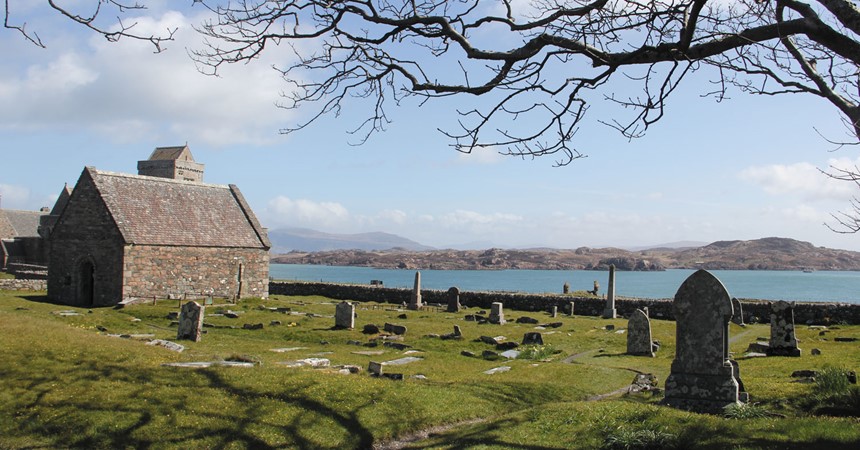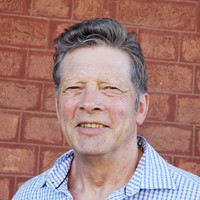From the time I was quite young, I loved the magical story of the prophet Elijah who, having fled for his life from Queen Jezebel’s wrath, was hiding in a cave on Mount Horeb. Accordingly, Yahweh “passed by”, the visitation being accompanied by earthquake, wind and fire. Apparently confounding Elijah’s expectation, Yahweh was “in” none of these manifestations but was found in the following lull, in “a still, small voice”. Here was the voice of silence speaking to Elijah and directing him.
I was charmed by many aspects of this encounter: by the notion of the Lord “dropping in”, as it were; by Yahweh communicating with humanity as a friend; by the God of Truth emanating from the propitious silence and either reaching into, or coming from, the very depths of the prophet’s personhood. And this God was not a thundering wielder of All-Power but a nurturer, a gentle leader beckoning a follower; a kind of conscience. I love the notion that there exists such a God of gentle persuasion. I dared to think and hope, as I still do, that such a being might dwell close to all who seek him.
Some time ago my wife Cathie and I spent several days in Cornwall, near Land’s End. Our accommodation was a stone cottage, a kilometre or so from Tintagel, near steepling cliff-faces where the on-rushing lunge of Atlantic breakers revealed a raw power. A westward view over the ocean stretched, unimpeded, towards the Americas. Here were wild waters and buffeting winds, awesomely beautiful turbulences, in a place where such elements were best lived with, for they had not only endured down the ages but had imposed their will upon the treeless slopes. This is a place riddled with almost inaccessible coves, evocative of smugglers, pirates and ghostly schooners that came sailing out of those childhood images seeded by Robert Louis Stevenson; a place where your back, pampered and caressed one instant by sun as you shelter behind a roughly-hewn wall of slate, was cruelly carved by freezing gusts and driving rains the next. Wonderful!
An escarpment high over Trebewith Cove held my senses captive; a precipitous place where my vulnerability and utter smallness were accentuated; a place in which the mighty power of creation must surely obliterate all other distractions. Its words came reverberating as if the whole cosmos was about to descend. Yet the feelings of trepidation and wonder were soon enough reduced to familiar obscurities; the cataclysmic intimidations to mere mumbles on the winds. I found myself lost in an earth-bound world of a hedge-row in close-up: in a tangle of briar, gorse, green tussocks, stone and soil revealing occasionally a patch of sky − a patch of fractured light.
Such was Land’s End, one of those places that stimulates all sorts of romantic notions and so many emotional responses. Here the majesty of the created world loomed like a gigantic postcard. We stayed. We saw. Then, we passed by, crossing the Tamar River heading northwards.
Our journeying ended on the Scottish isle of Iona − no random destination. Years prior, I had gone there and found the experience indelible, its call mesmeric. The curious sense of being welcome there was beyond reason but undeniably real. When my feet touched the quay, my excitement and anticipation resolved into an abiding calm; the profound serenity of the place, in contrast to its location, again enveloped me. Iona’s western coast is a jagged razor, constantly gouged by rearing, spuming seas. Some 1500 years ago, St Columba and his band of monks drove a sea-lane through the ocean’s jaws to make landfall here. Its eastern shore looks over the Sound of Mull which, like a massive iron-clad serpent, rips out its channel far and away to the outer isles. Iona has a granite spine, hatched that morning by constantly changing patterns of shadow and light. On its lee side, facing east, the soil is somehow life-sustaining, the climate moderate and there is the luxury of flowers. White cottages and daffodils dot the gentle slope that undulates towards the monastery.
Iona is old; the medieval monastery may well be upon the site of St Columba’s original church. Nearby is a graveyard which might be the last repose of several ancient Scottish kings. Saint Columba himself is believed to be buried on Iona. In what remains of the Augustinian nunnery, some of the dreaming stones of old stand; others, like those holy women, gone without trace. Historical uncertainties abound.
That morning of our arrival, as the sun wrapped shoulders like the arm of a celestial friend, these perplexities arose. What was the secret power of this place? Why, having been drawn here, did I have a sense of homecoming?
A thought arose that I cannot label random. The story of Elijah came into focus, at least, that part of the story, a key point, which I had glossed over. Elijah was fleeing from his God! And it was his God who found him. Perhaps, in my very insignificant and ‘un-prophet-like’ life, there was a ‘God moment’ imminent; a moment in which the Spirit might choose to pass by.
Minutes later, in a pamphlet near the Argyll Hotel, was an explanation concerning the meanings and origins of the names ‘Iona’ and ‘Columba’. The former in Hebrew, meant ‘dove’, as did the latter in Latin. In the instant the clouds of morning burnt anew with clarity: the two were one, inseparable and indivisible. The good man whose remains lie here is that beneficent spirit, the bringer of that aura of peace, which, as a matter of knowing and acceptance rather than of reasoning or of etymological proof, will dwell deep in this place till the end of time. These precious knowings became so beautifully apparent: in the world there is a special, and, in the deepest sense, ‘sacred’, place – Iona. Island of Peace. Island of the Dove. Warm heart of the nest.























































































